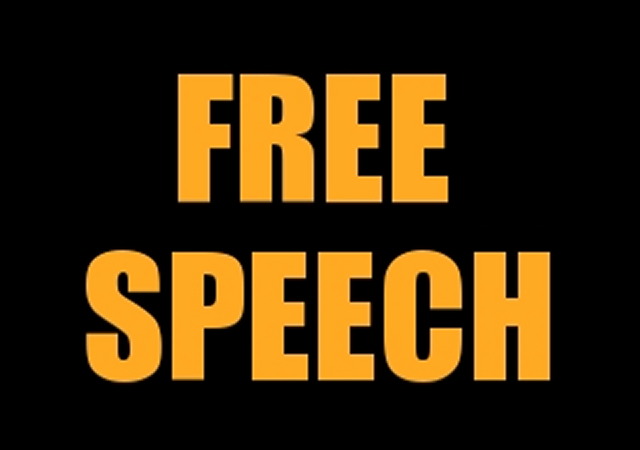Conservative Students Suing University of Houston Over ‘Hate Speech’ Rules
“say what UH considers hate speech is just their opinion”

While it’s great that these students are standing up, why does this fight fall to them? Where are conservative lawmakers in this situation?
News Nation reports:
Conservative Texas students suing university over hate speech rules
Three students of the University of Houston are suing the school, saying the school’s anti-harassment policies are limiting their free speech. The students, who consider themselves conservatives, say what UH considers hate speech is just their opinion.
Houston Chronicle reports one of the students believes the Black Lives Matter movement is making racial tensions worse. The other two students say they don’t feel free to express their beliefs against transgender women competing in women’s sports and that women make less money than men because of the free market, respectively.
The students, who are part of the advocacy group Speech First, say they want to talk to classmates about these issues but don’t want to be punished for it.
“These students want to engage in speech that is arguably covered by the University’s policy, but they credibly fear that the expression of their deeply held views will be considered ‘intimidating,’ ‘denigrating,’ ‘negative stereotyp[es] and the like,” the lawsuit reads.
The University of Houston said it stands by its policy, which prohibits discriminatory speech toward protected classes, such as race and sexual orientation.
“This lawsuit challenges the constitutionality of the University of Houston System’s Anti-Discrimination policy based on the First Amendment,” UH said in its statement. “We believe Speech First has misconstrued or misread this policy as our policy clearly indicates that actionable harassment must be ‘unlawfully severe, pervasive, or persistent treatment,’ the standard cited by Plaintiffs and adopted by the U.S. Supreme Court.”
 DONATE
DONATE
Donations tax deductible
to the full extent allowed by law.








Comments
Hate speech is free speech.
The First Amendment protects ONLY offensive speech.
Inoffensive speech needs no protection.
Groups pushing restrictions on free speech are those who would most likely benefit from listening to criticism, and interacting with a dialog about how they might improve themselves, their lives, their children’s lives and their collective communities. They should examine and improve their culture, discarding that which is detrimental. They need to understand how and why other people view them. Hopefully they learn something, and become a better person.
Read the article. The university claims its policy only bans unlawful harassment, which the speech the students say they want to engage in is not, so they should feel free to speak. They’re saying they don’t feel free, because they’re worried that the speech will be deemed after the fact to have been harassment. The university replies that that’s not a reasonable fear. How do you resolve that? It’s not a simple matter.
To Milhouse. You are right that it is a difficult question to resolve these things in advance. However, courts do have some experience in weighing the likelihood that a person really intends to express speech that he claims he intends to express, the likelihood that if he does so he will be punished unconstitutionally and the likelihood that that punishment would irreparably harm him. In the First Amendment context, there is precedent for assigning a great deal of weight to the claim that a regulation has a chilling effect and courts stepping in on that basis without requiring the person to speak, be punished and then sue. Look at the website designer’s case that the Supreme Court just agreed to hear: she says that if she starts doing weddibg websites, Colorado will force her against her religious beliefs to do them for LGBT weddings. A good indicator here is the fact that reading the university’s policy provides at least a plausible concern that the various statements quoted could be punished and the university’s apparent refusal to promise that they would not punish anyone on that basis.
UH said in its statement. “We believe Speech First has misconstrued or misread this policy as our policy clearly indicates that actionable harassment must be ‘unlawfully severe, pervasive, or persistent treatment,’ the standard cited by Plaintiffs and adopted by the U.S. Supreme Court.” However, if you followed the Dept of Education rulemaking on sexual assault and harassment, you would know that everyone was fighting over “and” vs. “or.” The Supreme Court said “severe, pervasive AND persistent” not “OR” so the final rule has an “AND” — a complaining student must show all three, not just one. The UH publicist just admitted in writing that they are applying the WRONG standard.